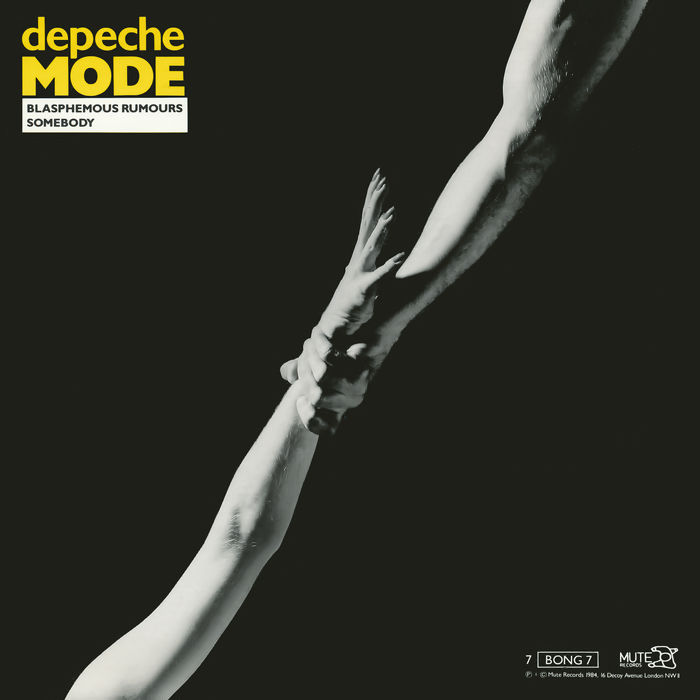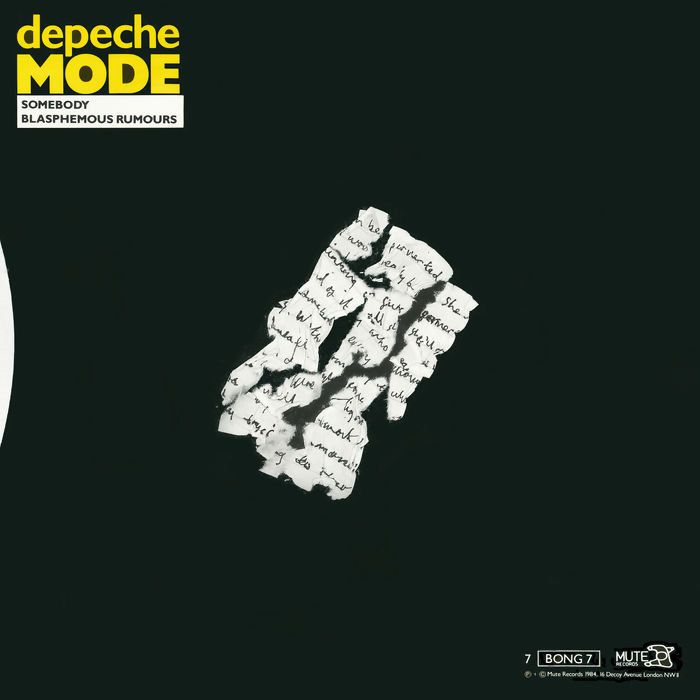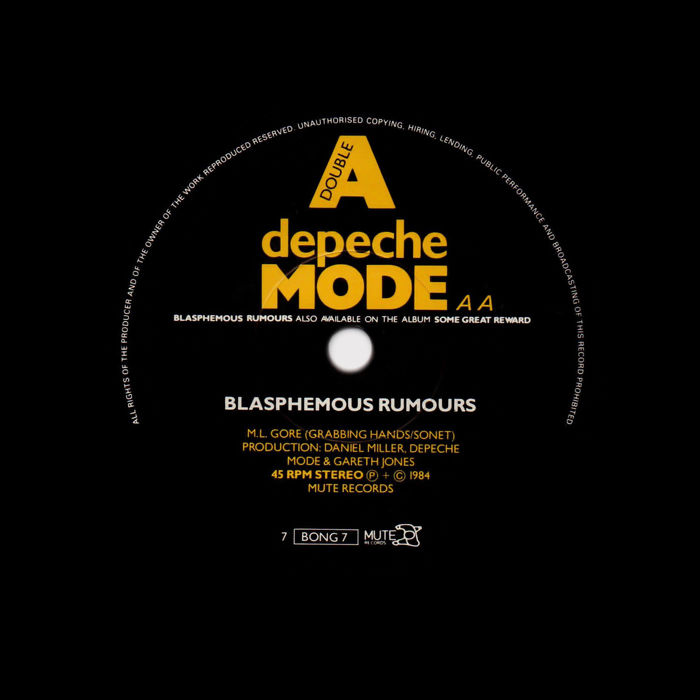The Story Behind The Song
This double A-side features the industrial synth sound of Blasphemous Rumours and the piano-based ballad Somebody, both penned by Martin Gore. Blasphemous Rumours is quite possibly the best pop song ever written about the problem of evil - the philosophical issue of why a good and all-powerful god would allow unjustified evil in the world. The traditional defence is to acknowledge that evil exists but to argue that it is justified because it enables goodness to be displayed (i.e. it is character building). Alternatively, evil is the result of our free will. In other words, evil is actually necessary for goodness or it is our fault. This is not the place to discuss a philosophical problem but both approaches are unsatisfactory in varying degrees to most philosophers today.
In the song we briefly follow the life of a young woman. In the first verse, as a troubled 16 year old, she attempts suicide: "Girl of sixteen, whole life ahead of her Slashed her wrists, bored with life Didn't succeed Thank the Lord For small mercies."
Her escape from death is attributed to the actions of a merciful god. Given a second chance, the girl finds faith and lives life to the full. She is now a different person but is involved in a serious car accident two years later: "Girl of eighteen, fell in love with everything Found new life in Jesus Christ Hit by a car, ended up On a life support machine."
Her life hangs in the balance again but in the next verse we learn that she passes away. There appears to be no obvious reason for the cruel irony. The problem becomes acute if we interpret the 18 year old to be a different person because it highlights the dilemma. Although both girls have their whole lives ahead of them, the unbeliever who wanted to die actually survives while the life-affirming believer dies. The blasphemous rumour is to suggest that a supreme being, like the wizard behind the curtain in the Wizard of Oz, may not be who we think it is. The philosophical point is that the existence of evil is not a problem if we believe in a supreme being who is unloving or amoral, but of course this is not the perfect god of classical theism.
In 1990, Gore explained why he composed the song to Spin magazine: "I was going to church a lot at the time, not because I believed in it, but because there was nothing else to do on a Sunday. I found the service hard to take seriously… particularly a part called the prayer list, when the preacher rattles off the names of those sick and about to die. The person at the top of the list was guaranteed to die, but still everyone went right ahead thanking God for carrying out his will. It just seemed so strange to me, so ridiculous and so removed from real experiences."
A song titled Blasphemous Rumours is likely to be controversial, and it was. Its airplay was limited by the BBC for fear of causing offence. Group member Alan Wilder told LA Times in 1985 that "Religion is a more sensitive subject than sex. You've got to be careful with it. In that song it's handled tastefully." Yet in the same interview he also insisted that "strong lyrics are necessary. It doesn't matter if they bother people. Who wants to hear bland, meaningless lyrics?"
At this time, Depeche Mode had modest commercial success in the US but everything changed by the early 1990s. Not only were they selling-out massive stadiums for their concerts, they also released Personal Jesus, which many people interpreted religiously. The late country star Johnny Cash even covered the song in 2002. "I heard that as a gospel song," Cash later explained. "I don't know that the writer ever meant it to be that, but that's what it is." In fact, Gore actually wrote it after reading Priscilla Presley's autobiography and it is about having someone in your life who provides hope and comfort. Nevertheless, in five years the synth group had gone from Blasphemous Rumours to Personal Jesus, from provoking anti-religious controversy to being covered as a gospel song. The irony would not have been lost on the group.
We hereby instate Blasphemous Rumours by Depeche Mode on The Wall as No.9 Best Single of 1984
For me, this is one of the best electronic songs of the 1980s. Highly distinctive "industrial" synth combined with a memorable lyric. Depeche Mode at their best.Ant B




